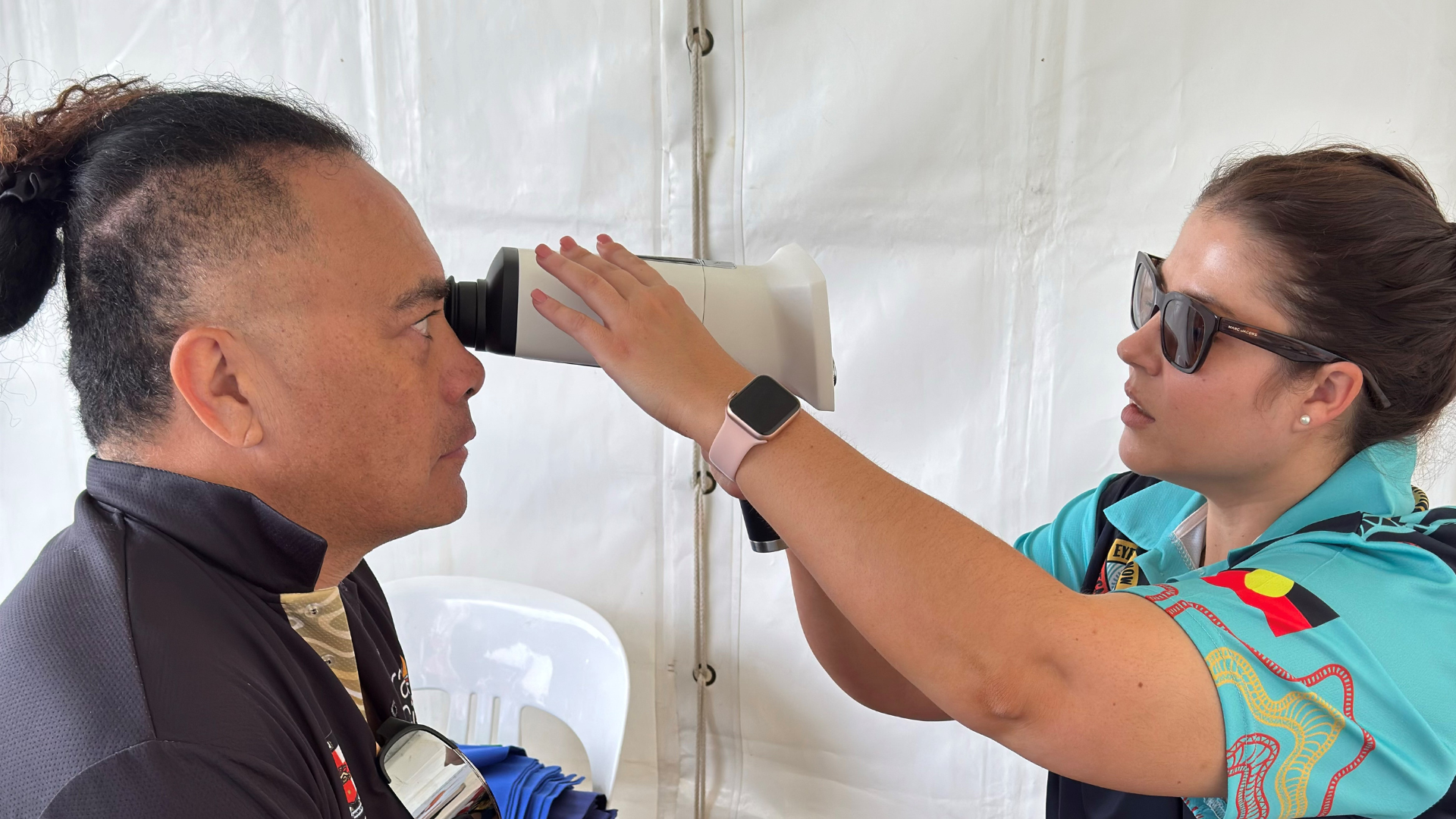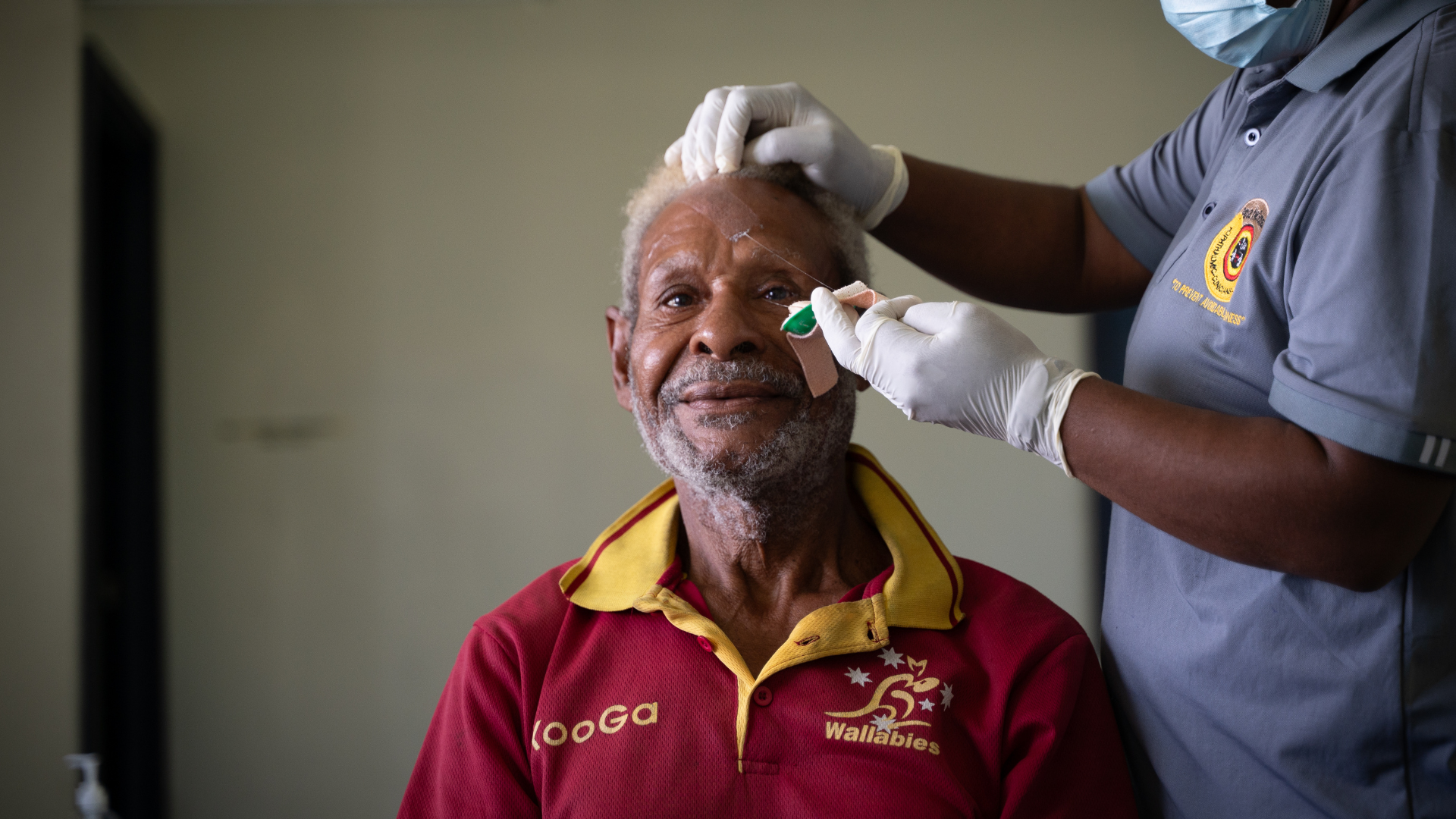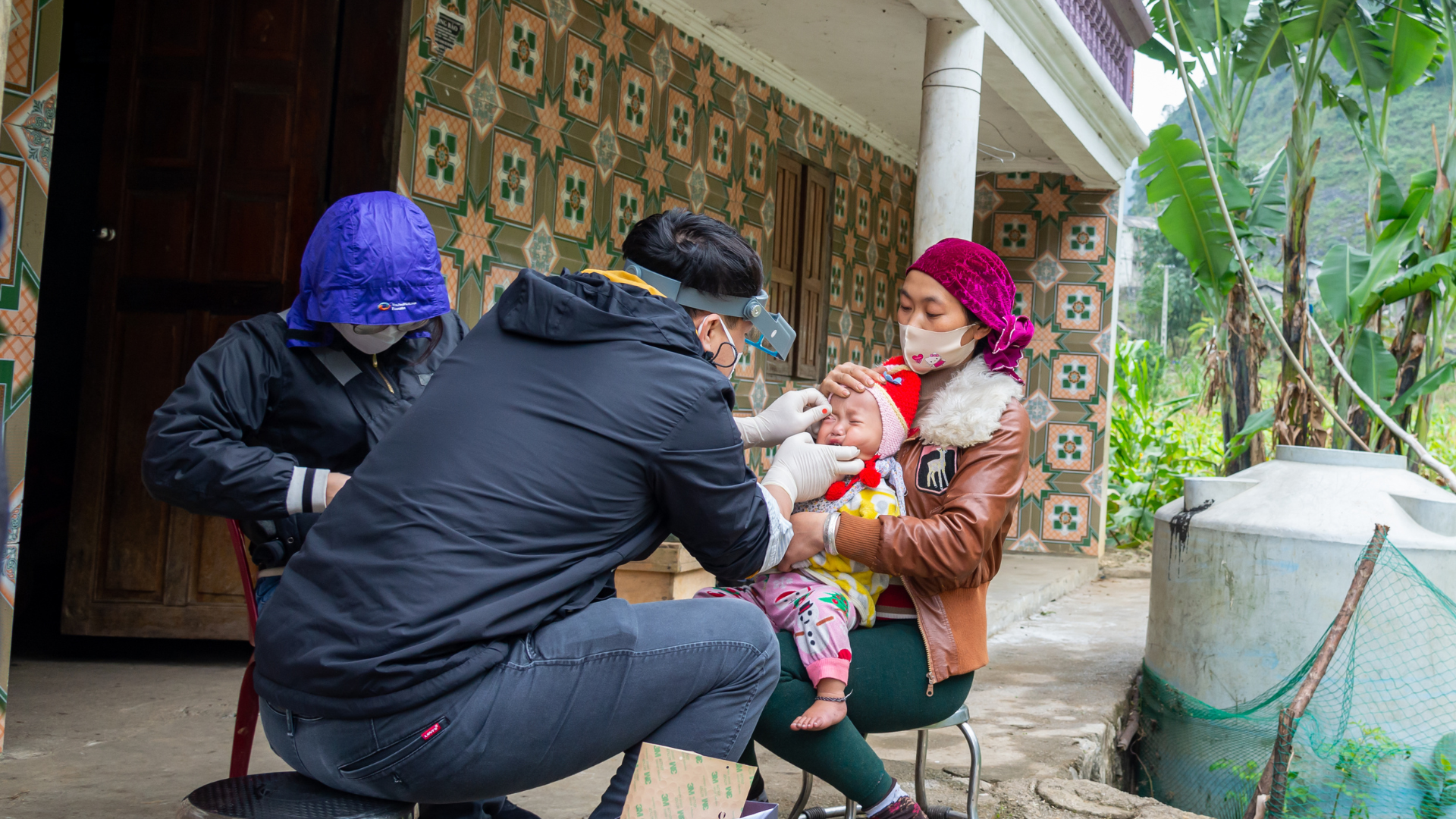Celebrating the biggest wins in eye health over the past decade

Over the past 30 years, The Fred Hollows Foundation has helped restore sight to millions of people around the world. In over 25 countries, The Foundation has provided eye care services, trained eye health workers, and established eye health systems that are sustainable and accessible to all. Read about some of our biggest wins over the last decade as we continue our mission of ensuring that everyone, regardless of where they live or their circumstances, has access to quality eye care.
In a hurry?
Click on the link below to go directly to what you’re most interested in:
- Reaching an important milestone
- Eliminating trachoma in Myanmar
- Increasing Eritrea’s workforce
- Investing in affordable healthcare
- Strengthening access to eye health in Cambodia
- Eliminating avoidable blindness in Bangladesh
- Improving Indigenous Australian health outcomes
- Increasing cornea donations
- Innovating eye health technology
- Alina Vision reaches more people than ever
1. Reaching an important milestone
The Fred Hollows Foundation has restored sight to 3 million people.
For 30 years, The Foundation has been dedicated to ending avoidable blindness by providing access to quality eye care, empowering local communities, and advocating for global change. Thanks to this unwavering commitment, The Foundation has restored sight to over 3 million people in need, transforming their lives and those of their families and communities.
2. Eliminating trachoma in Myanmar
Myanmar has eliminated trachoma as a public health problem.
The Foundation has worked closely with the government of Myanmar and local partners to provide access to quality eye care, improve sanitation and educate communities about the importance of eye health. Thanks to this collaborative approach, Myanmar has become the 12th country in the world to eliminate trachoma, bringing us one step closer to a world where no one is needlessly blind.
3. Increasing Eritrea’s workforce
Eritrea has doubled its workforce.
Eritrea has doubled the number of eye surgeons in Eritrea from three to six, bringing new hope to Eritreans living with treatable eye diseases. The Foundation's commitment to investing in local leadership and building sustainable eye care systems has meant that one of the most significant barriers to accessing eye health services - an understaffed health workforce - can be reduced.
4. Investing in affordable healthcare
The Foundation has helped develop an affordable ophthalmoscope called the Arclight.
This groundbreaking device, developed by The Foundation in collaboration with experts from around the world, allows health workers to perform cataract surgery in even the most challenging conditions. With its portable and cost-effective design, the Arclight is helping deliver eye health services in remote areas, reaching more people than ever before.
5. Strengthening access to eye health in Cambodia
All Cambodians now have increased access to eyeglasses.
The Fred Hollows Foundation has worked closely with the Cambodian government and local partners to develop a sustainable, community-led approach to eye health. This model will help increase the supply of eyeglasses, providing affordable and subsidised glasses to more than 110,000 children and adults, creating permanent access to eye health services and glasses.
6. Eliminating avoidable blindness in Bangladesh
There is increased hope for eliminating avoidable blindness in Bangladesh.
Rapid progress has been made in restoring sight to people in Bangladesh, with the number of sight-saving surgeries being performed in the region rising dramatically. The Foundation, alongside local health workers, are leading this transformation by investing in long-term eye health services.
7. Improving indigenous Australian health outcomes
Dr Kristopher (Kris) Rallah-Baker is Australia’s first and only Aboriginal ophthalmologist.
As Australia's first Aboriginal ophthalmologist, Dr. Kris Rallah-Baker has worked tirelessly to improve access to quality eye care for Indigenous Australians. Alongside The Foundation, Dr. Kris is restoring sight to those in need whilst also empowering Aboriginal and Torres Strait Islander people to take control of their health outcomes.
8. Increasing cornea donations
Nepal’s Tilganga Institute of Ophthalmology builds one of the most successful corneal donation programs in the world.
The Tilganga Institute of Ophthalmology launched the first eye bank in Nepal, with more than 10,000 people having had their sight restored through its corneal donation program. The institute is so self-sufficient that it sends donated corneas worldwide, from Bhutan, China, Malaysia and Pakistan to Cambodia, Bangladesh, Indonesia, Thailand and East Timor.
9. Innovating eye health technology
The Foundation has helped develop telehealth and artificial intelligence to improve access to eye care services.
Telehealth has helped bridge the distance between eye health specialists based in cities and health centres in remote areas. Health workers can capture images of the eye through digital retinal cameras and send them online to eye specialists for assessment. This technology has reached marginalised communities, providing access to vital eye care services and improving the quality of life for thousands of people.
10. Alina vision reaches more people than ever
Alina Vision will create a network of more than 60 eye surgery centres in some of the world's most under-served communities.
Alina Vision has delivered high-quality, accessible and sustainable eye care for people of all income levels, actively reaching out to those excluded from mainstream healthcare systems, particularly low-income people and women.
COVER PHOTO: Michael Amendolia
Related articles

Koori Knockout raises eye health awareness among thousands on World Sight Day

Eyes on the Future: Australian and New Zealand Governments Invest in Centre for Eye Health in Papua New Guinea

